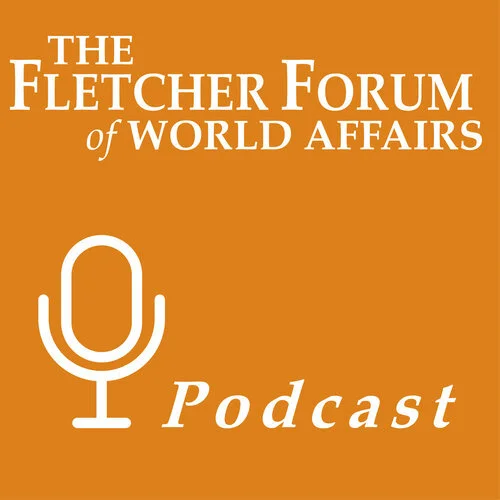What Mark Rutte’s Election Victory Means for Netherlands and the EU
By Hannan R. Hussain
Dutch Prime Minister Mark Rutte returned to power for a fourth term, after his People’s Party for Freedom and Democracy (VVD) scored the largest share of seats in parliament in last month’s election. Weeks after that victory, Rutte keeps alive the prospect of courting centrist allies in a governing coalition.
Rutte’s demonstrated success in securing a clear majority in this year’s Dutch elections was also symbolic: it arrived against the backdrop of thousands of socially-distanced polls, limited public optimism, and a theater of competition involving dozens of contending parties.
A liberal-right veteran who has won public approval for over a decade, Rutte is a leading figure in Netherlands’ delicateCOVID-19 pandemic management and a trusted counterweight to far-right populism. Consider the fact that despite a tax and racial profiling scandal bringing his government to its knees earlier this year, Rutte did not focus his campaign on debating the controversy. The immediate effect: greater public support marshaled behind a time-tested Dutch status-quo.
Voter motivations for banking on Rutte’s appeal also carried a telling message on where the country may be headed in the coming months. Citizens went to the polls with varied concerns of an intensified housing crisis and selective healthcare funding, and those challenges are likely to sustain. But Rutte’s periodic success in billing bigger budgets and leveraging emergency EU funds, has made any drastic shift in the ruling status-quo unlikely to appeal Dutch voters.
Note that phased openings under broad-based lockdowns have induced favorable sentiments from libertarian citizens, making it practical for Rutte’s incoming coalition to accommodate opposition pressures on economic recovery, and balance that resolve against raging virus infections.
On the foreign policy front, Rutte’s reputation as a manager of bipartisan disputes at home will face a hefty but achievable challenge in European policy circles. Brussels has been pushing for stronger political and economic integration in wake of London’s Brexit cut-off, and that vocal push for bloc consolidation has acquired a keen audience in Democrats 66 (D66) – Rutte’s much-needed centrist coalition allies.
The party’s leader Sigrid Kaag has already rationalized her coalition support against one familiar understanding: that Rutte’s election triumph will keep European liberties in mind. “I have always believed and that has been confirmed this evening, that people in the Netherlands are not extreme, but moderate and appreciate a positive attitude,” remarked Kaag. Her ability to converge with Rutte on issues such as greater fiscal responsibility and single market economic strategy is part and parcel to the defining priority within EU ranks. Taken together, the formation of a governing coalition that has resonance with the EU underlines Rutte’s pivot towards European multilateralism.
Rutte’s economic contingency measures, such as keeping unemployment rates historically low at 2.9%, are likely to remain popular.
Consider the sheer scale of damage caused by a second-wave COVID-19 virus surge, and the fears of a third on the horizon. Major engines of Netherlands’ financial growth – including tourism and hospitality industries – have been slammed by monetary and fiscal constraints, dwindling investments, and volatile consumer spending spikes. More importantly, noticeable variations in Dutch labor force representation run contrary to the relish of growth heydays, making an evaluation of economic assumptions critical in parliament.
To Rutte’s broader credit, the incoming Dutch parliament is a crowded field of moderates, liberals and far-right faces, where the incentive to streamline growth recovery packages is naturally diverse. Note that such incentives are being championed overseas by Rutte’s own allies, who stress an open-ended approach to cooperation with Germany and France.
The focus on these two powers is no coincidence either – it is a reminder that Netherlands’ dwindling economic outputs, fragile small-state alliances, and weak growth prospects have limited traction among influential regional players, underlining the need of a stronger pro-EU pivot.
For Netherlands to court generous approval of Paris and Berlin, Rutte would likely be pushed into establishing the country’s own negotiation clout in high-stakes EU deliberations. His demonstrated leadership appeal across parliamentary circles can be a starting point to make up for lost ground: Berlin and Paris were visibly alarmed by Rutte’s prior resistance to a $900 billion-strong EU recovery fund, a fund which the two preferred allies helped spearhead.
All this suggests a more transformative spin on Rutte’s return to power, where coalition support is grounded in European worldviews, open deliberations on fiscal easing, and a concerted push towards pandemic controls.
By promising Dutch masses the time-tested continuity of his own political status-quo, Rutte succeeds in communicating what millions wish to hear: insurance against party infighting.
Hannan R. Hussain is International Affairs Columnist for CGTN and an author. He was previously Assistant Researcher at the Islamabad Policy Research Institute (IPRI). Hussain’s writings on world affairs have been published in The Diplomat, South China Morning Post, and The Sydney Morning Herald, among others.
Mark Rutte is by EU2017EE Estonian Presidency and is licensed under CC BY 2.0.







